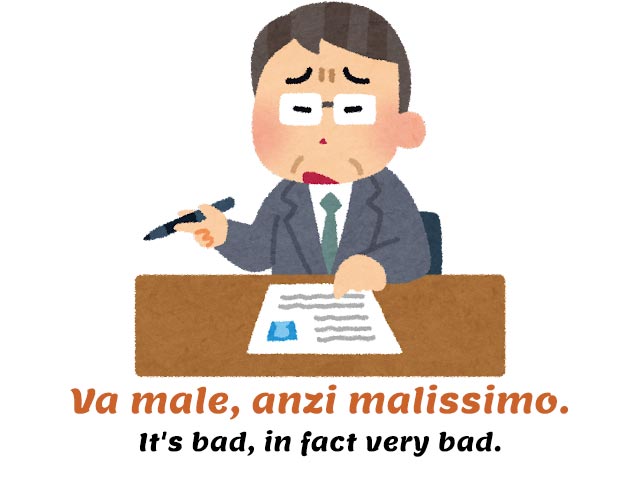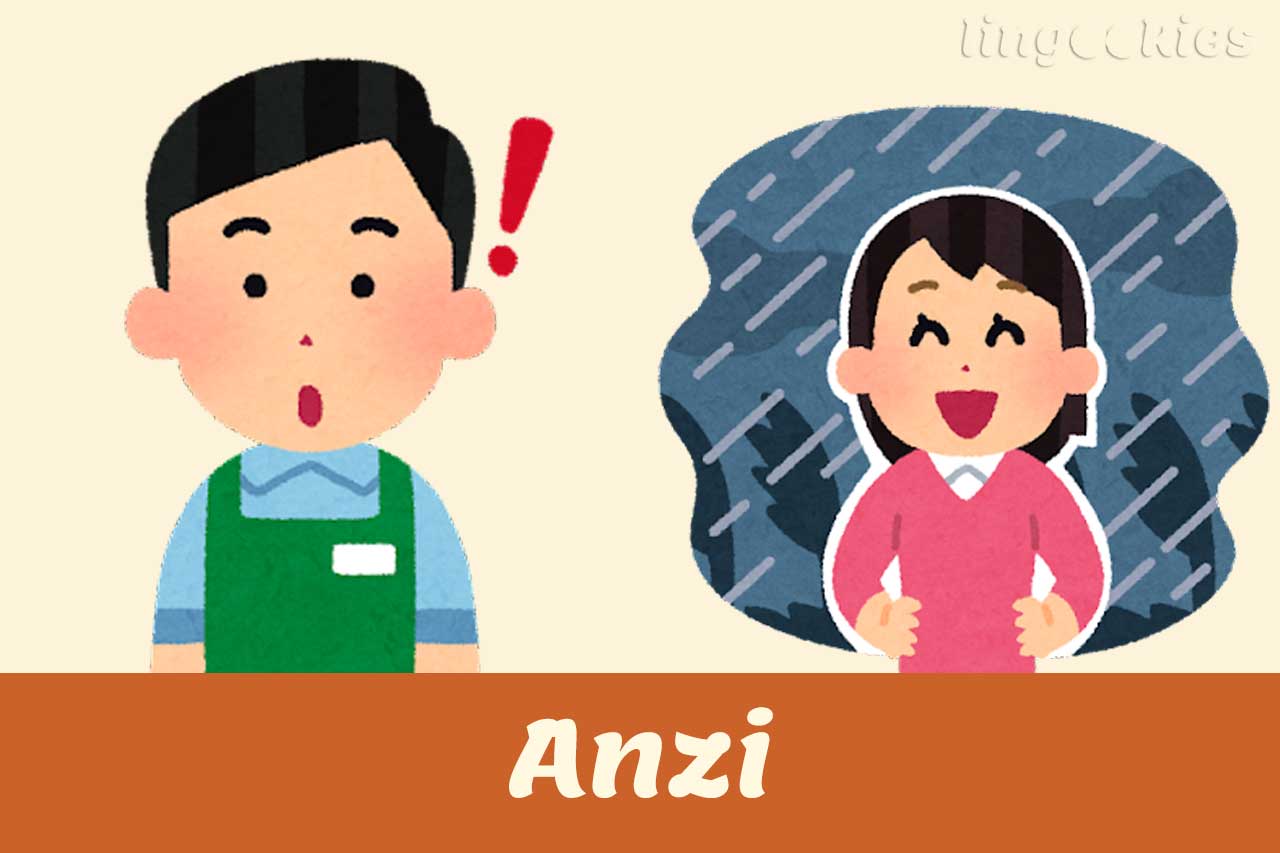Italian word of the day
Anzi is a conjunction that most often means “actually”, “on the contrary” and “in fact. It can also be translated as “rather” and “instead”, so this little word has multiple purposes.
| Pronunciation | |
| English translation | Actually, on the contrary, in fact, instead, rather |
| Origin | From the Latin word antĕa, “after, in front of” |
Examples
| Luca non è mai in ritardo, anzi è sempre in anticipo. | Luke is never late; in fact, he is always early. |
| Potrei avere una birra? Anzi no, mi porti un bicchiere di limonata, per favore. | Could I have a beer? Actually no, bring me a glass of lemonade, please. |
| Va male, anzi malissimo. | It’s bad, in fact very bad. |

Using anzi in Italian
Anzi is used to emphasize or rephrase a statement. It states the opposite of what you’ve just said or serves as an intensifier.
It can stand alone at the end of a sentence to invite someone to continue.
| Ti dispiace se prendo in prestito la tua penna? – No, anzi! Fai pure. | Do you mind if I borrow your pen? – Not at all! Go ahead. |
It can give a positive nuance to the sentence, as in…
| Ivan non è affatto un cattivo giocatore, anzi, è il più bravo della squadra. | Ivan is not a bad player at all; in fact, he is the best player on the team. |
It can also convey a negative nuance, as in the example…
| Paolo non ride mai, anzi è sempre scocciato. | Paul never laughs, in fact, he is always annoyed. |

More free Italian resources
You might want to keep learning Italian online with these free Italian resources:
❤️ If you liked this lesson on how to use anzi in Italian, share it with your friends!


